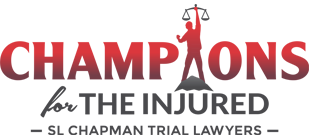Low Testosterone
Testosterone Litigation
It’s no secret that pharmaceutical companies spend millions of dollars every year advertising testosterone treatment drugs that promise to increase a man’s strength, energy and libido. We’ve all seen the ads promising to transform an aging man’s decreasing libido and reduced energy into a powerhouse of abundant manliness that can out perform anyone on the basketball court and easily pluck double-axle trailers out of the mud.
However on January 31, 2014, the FDA issued a Safety Announcement regarding its investigation into the risk of stroke, heart attack, and death in taking FDA-approved testosterone products. According to the Safety Announcement, FDA-approved testosterone products are “only” approved for use in men who lack or have low testosterone levels in conjunctionwith an associated medical condition, and not for use in men who only have a lack or have low testosterone levels but not an associated medical condition.
In general, the associated medical conditions include failure of the testicles to produce testosterone due to genetic problems or chemotherapy, and problems with brain structures such as the hypothalamus or pituitary that control the production of testosterone by the testicles. The formal medical terms for these conditions are:
– Primary hypogonadism (congenital or acquired), a testicular failure due to conditions such as cryptorchidism, bilateral torsion, orchitis, vanishing testis syndrome, orchiectomy, Klinefelter’s syndrome, chemotherapy, or toxic damage from alcohol or heavy metals. These men usually have low serum testosterone concentrations and gonadotropins (FSH,LH) above the normal range, or
– Hypogonadotropic hypogonadism (congenital or acquired), an idiopathic gonadotropin or luteinizing hormone-releasing hormone (LHRH) deficiency or pituitary-hypothalamic injury from tumors, trauma, or radiation. These men have low testosterone serum concentrations but have gonadotropins in the normal or low range.
However, manufacturers of Testosterone Treatment Drugs are promoting their use for conditions not related to low testosterone levels, such as energy loss, mood changes, reduced sex drive, and in cases where there is no associated medical condition.
Two separate studies — one conducted by the U.S. Veteran Affairs health system and another published by PLOS One — both indicate that men taking testosterone drugs have an increased risk, up to 30%, for suffering cardiovascular events, including strokes, heart attacks and death. It is also important to note that the studies showed that there is a dramatic increase in injuries during the first 90 days of use, including risks that were 200% and 300% higher for certain groups.
What does this increased risk mean? In an article in USA Today, Francisco Lopez-Jimenez, a cardiologist at the Mayo Clinic in Minnesota not involved in the new study, describes the heart risks posed by testosterone therapy as substantial. “That’s equivalent to smoking one or two packs of cigarettes a day, or having sky-high cholesterol,” Lopez-Jimenez says.
The Safety Announcement did not name any specific testosterone treatment products and/or manufacturers who may be affected by the FDA’s investigation, but many lawsuits are being investigated nationwide regarding the following Testosterone Treatment products and/or manufacturers:
Androgel® (Abbvie, Inc. a/k/a Abbott Labs)
Androderm® (Actavis, Inc. f/k/a Watson Pharm, Inc.)
Axiron® (Eli Lily & Co.)
Bio-T-Gel® (Teva Pharmaceuticals)
Fortestra® (Endo Pharmaceuticals)
Striant® (Actient Pharmaceuticals)
Testim® (Auxilium Pharmaceuticals).
FDA-approved testosterone formulations include the topical gel, transdermal patch, buccal system (applied to upper gum or inner cheek), and injection.
NOTE: Generic testosterone treatment products are typically taken by injection. Depending on the information provided by you, generic testosterone treatment products may not be included in SL Chapman LLC’s investigation.
If you or a loved one is currently experiencing problems or have received testosterone treatment, then you can get help by contacting the experienced lawyers at SL Chapman LLC for a free initial consultation.
E-mail SL Chapman LLC at info@SLChapman.com, or call (800) 851-5523 today.


